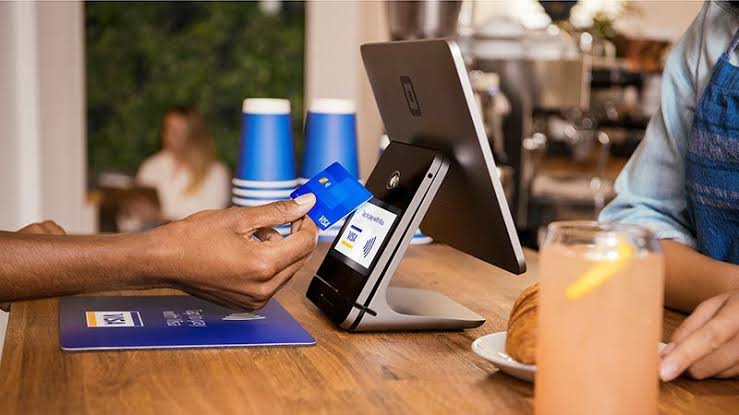
Expert lauds move towards contactless payments, revolution in Nigeria’s financial sector
By Zion Rufus
In recent times, the Central Bank of Nigeria (CBN) has been vigorously advocating for the introduction and utilization of Contactless Payment systems in the country. A significant milestone was achieved on June 27, 2023, with the issuance of the “Guideline for Contactless Payment Services by Financial Institutions in Nigeria” by the CBN.
While Contactless Payments may appear novel to many Nigerians, several countries around the world have long embraced this efficient payment method.
Praise Darego, a legal associate at Perchstone & Graeys LP, emphasized the rapid pace of technological advancement in today’s world and hailed Contactless Payment as one of the fastest and most secure payment methods.
While commending the CBN for its forward-thinking approach in issuing the Guidelines, he noted in an article that the Guidelines will encourage innovative advancements in Nigeria’s payment sector by embracing Contactless Payments.
“While it’s not without risks, Contactless Payment is undeniably the future of payments. The CBN and key stakeholders should focus on implementing safety measures to protect customers from potential fraud risks,” Darego stated.
Contactless Payment is an alternative payment system that allows electronic transactions to occur by simply tapping or swiping a mobile device, card (physical or virtual), smartwatch, or any compatible device over a wireless payment receiver. The unique aspect is that the initiating device need not physically contact the payment receiver; a simple tap, swipe, or proximity is all it takes. This technology employs Near-Field Communication (NFC) and Radio Frequency Identification (RFID) to facilitate secure payment data exchange between Contactless-enabled cards or devices and payment receivers. This innovation aims to expedite payment processes and enhance customer satisfaction.
Although Contactless Payments are relatively new in Nigeria, they have been adopted in countries like the United Kingdom, Australia, Canada, Japan, Germany, France, and more as a swift and convenient method for everyday purchases. Statistics from 2017 show that 92% of in-store Visa transactions in Australia were Contactless, while Singapore (63%) and Canada (47%) were early adopters. MasterCard reported that in 2021, half of its global in-person transactions utilized Contactless Payments. Notably, digital financial service providers such as Apple Pay and Google Pay have played a pivotal role in driving the adoption of Contactless Payments among customers.
The United States, although initially slow in adopting Contactless Payments prior to the COVID-19 pandemic, has since experienced a surge in usage. Over 85% of transactions at grocery stores and notable increases in contactless payments at pharmacies, retailers, and restaurants have been observed. Only the transit industry lagged behind, with approximately 9% of transactions using Contactless Payments. In 2023, Contactless Payments accounted for approximately USD 30 billion in total transactions.
The Central Bank of Nigeria’s introduction of Guidelines to regulate Contactless Payments in the country represents a commendable step in the right direction. This initiative is expected to encourage innovators to seize opportunities and develop solutions that will establish Contactless Payments firmly within the Nigerian financial sector, fostering overall economic growth.
Businesses across various sectors, including supermarkets, fast-food restaurants, filling stations, toll gates, and self-service checkouts, stand to benefit from the reduced congestion at payment terminals. Furthermore, Contactless Payments eliminate the need for physical cards and memorizing Personal Identification Numbers (PINs), making it a convenient option for both customers and service providers, particularly small and medium-sized enterprises (SMEs).
The Guidelines stipulate that Contactless Payments through accounts or wallets in Nigeria are limited to ₦15,000 (Fifteen Thousand Naira) per transaction and ₦50,000 (Fifty Thousand Naira) per day. This restriction serves as a protective measure against potential fraud risks associated with Contactless Payments. Transactions exceeding these limits will require authorization from the payer, although such transactions are permitted. This measure is essential for mitigating the potential for fraudulent activities under this payment scheme.
Moreover, the Guidelines mandate banks, financial institutions, and other payment service providers participating in Contactless Payments to implement robust risk management measures in line with industry best practices. While the CBN’s initiative is commendable, concerns remain about maximizing the benefits of this advanced technology amid current infrastructure challenges and the evolving landscape of financial and cybercrimes. Notably, security remains a paramount concern, particularly in the context of potential fraud.
One potential security enhancement could involve Contactless Payment providers capturing the payer’s facial image at the point of sale and storing it for a reasonable duration, available in case of transaction disputes. Banks and financial institutions could also send debit alerts containing comprehensive transaction details, including the payment location and time, to provide users with greater visibility and security.
Additionally, allowing users the flexibility to adjust their transaction and daily limits within the framework established by the CBN could encourage broader adoption among diverse user groups, from the elite to the general population. Raising awareness of Contactless Payment usage and associated risks will also be pivotal in safeguarding users from potential fraudulent activities.




Comment
No comments found.